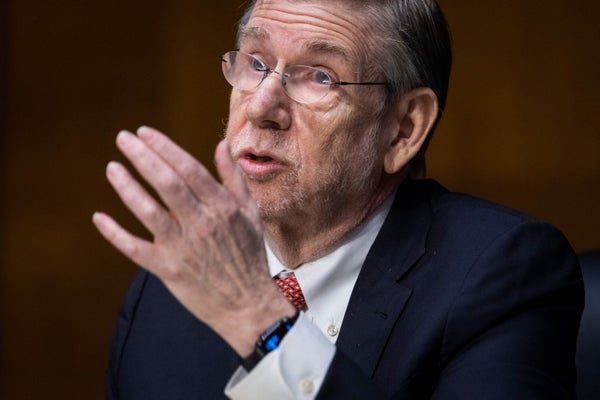We have heard the calls for communication trainings for scientists, part of the recent push to encourage scientists to pare down their extensive explanations into jargon-free digestible bites. In this way, we are told, scientists can speak science to nonscientific policy makers and to the public at large.
But based on my research for my forthcoming book about evidence-based policy making in Congress, there is a key ingredient missing from this conversation. The challenge is not merely with the substance scientists communicate, but with the tone used to deliver that substance. Academics may be convinced of the importance of their research, but they often fail to communicate their confidence to the politicians who hold the purse strings. Indeed, funding for academic research is crucial, and yet, federal funding for science is roughly $ 130 billion, compared to $ 450 billion flowing from the private sector. My research shows that the tentative tone of scientists proves a challenge in speaking with policy makers and demonstrates the need for science policy training programs to focus on tone rather than just substance.
To examine the link between the professional background of the witnesses testifying before congressional committees and the language they use, I gathered data on the professions of witnesses and analyzed the language of witness testimony using Language Inquiry and Word Count (LIWC) software, which employs dictionaries of words that convey certain emotions or tones. The analysis draws on an original data set of 1,364 pieces of witness testimony, representing 456 hearings in eight congressional committees during the 112th–116th congressional terms, as well as an original data set of witness professions.
On supporting science journalism
If you're enjoying this article, consider supporting our award-winning journalism by subscribing. By purchasing a subscription you are helping to ensure the future of impactful stories about the discoveries and ideas shaping our world today.
Of the many committees in my sample (Senate Foreign Relations, Commerce, Judiciary, Finance; and House Agriculture, Ways and Means, Veterans Affairs, and Science), the House Science Committee predictably heard from the most academics; approximately a quarter of witnesses during the 114th congressional term were academics. What was more surprising was that the witness transcripts from the House Science Committee showed the highest number of words conveying tentativeness and the lowest number of words conveying certainty.
My research also drew on over 65 interviews with senators, members of the House of Representatives, staff, witnesses and other relevant actors in order to draw conclusions about the implications of these findings. I found that the tentative tones of science form an obstacle for political communication. A congressman who is also a physicist by training explained in an interview with me that the “typical scientific presentation presents data and then conclusion. As politicians, we have to lead with the conclusion.... Unlike in science where you say how say ‘how do I get to the truth?’ it’s much more like law where you say ‘how do I convince the jury?’” Given that the scientific method is grounded in questioning and casting doubt, it makes sense that its advocates speak using tentative language. Convincing the jury, however, involves speaking with certainty.
When scientists do communicate using clear and confident language, there is evidence that policy makers listen and understand. A House committee staffer explained, in an interview with me, that for a June 2015 House Science Committee hearing on the genetic editing of DNA she chose witnesses based on their ability to communicate in a forthright and effective manner. As a result, several people in the hearing told me that they perceived this as a hearing in which Congress learned and understood the importance of research on gene editing in the United States. Federal funding for gene editing technology increased from $5 million in 2011 to $1.1 billion in 2018. The House Science Committee oversees the National Institutes of Health, where most of this funding came from.
Unfortunately, my research found that examples of effective and self-assured science testimony in committees are still all too rare. The general tendency towards tentative communication has real ramifications when scientists speak to the committee that oversees funding of science.
A possible solution to this problem emerges from across the professional divide: academics typically receive little to no preparation from their employers before they provide testimony. On the other hand, many private sector witnesses receive coaching on how to speak to committees or what questions to expect from committee members. In fact, in their study of expert witnesses testifying before Congress, Jack Van Der Slik and Thomas Stenger found that one third of witnesses surveyed received assistance from interest groups in crafting their witness statements.
Given the crucial importance of congressional appreciation for and funding of science, universities and other professional associations for scientists could invest in training for academics before they speak to policy makers. Such trainings could extend beyond traditional science communication training and focus on tone and delivery. It is important to train scientists to lead with a clear set of conclusions rather than questions and to speak using confident words. One lobbyist I interviewed spoke of “murder board” type prep with private sector witnesses, grilling them on possible questions before the hearing and training them to give self-assured answers. Trainings for scientists can borrow from such techniques in order to prepare academics to both clarify and fortify their language. Ultimately, such trainings could even translate to increased support for science, and more life-changing breakthrough discoveries in the field.
